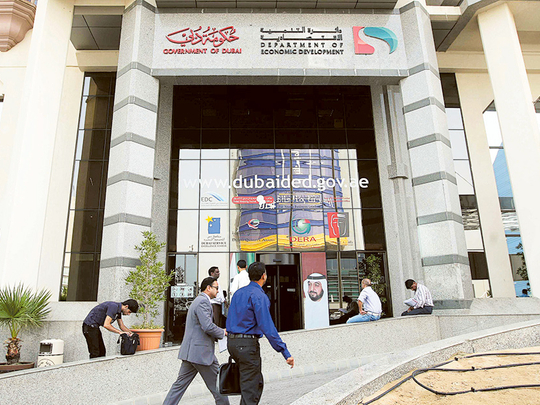
Dubai: Banks across the Gulf have not wasted much time in courting small businesses with a raft of offers, offering everything from working capital support to soft loans for any planned expansion. In fact, there is intense competition among them as to which entity can come out with the most generous terms, as banks try to lock in prospective clients into lasting — and potentially win-win — relationships.
Now, it looks to be the turn of insurers to court these businesses. The regional operations of France’s AXA has just set up a dedicated unit. “Our customers will get more — first, because we are constantly analysing evolution of the risks, change in regulations, and verifying on a regular basis the fulfilment of customers’ needs,” said David Fontaine, Head of SME at the insurer. “This process will result in regular reviews of the covers, benefits and the services we offer.
“We want to be able, at least, on a yearly basis to analyse with SME business owners if their protection plan is still adapted to their situation. We will deploy in the coming weeks an online tool to provide risk assessments and diagnosis.” The ‘SME Insurance Advisor’ will be available online on www.axa-gulf.com/sme-solutions.)
While there have been continuous attempts to raise the level of awareness of having insurance cover, the sentiment among business owners is to make do only with the absolutely required ones in an attempt to keep expenses down. But with health insurance for employees now mandatory in Dubai as well (Abu Dhabi already has it), smaller firms will have to counter higher insurance-related costs. (Dubai has gone in for a staggered introduction process, which means that smaller firms will have until mid-2016 to be in compliance.)
“Medical insurance is the most costly to an SME,” said Fontaine. “SME owners are primarily interested in covering their main liabilities (legal liabilities to employees and third-parties), and then covering health care costs for themselves, their employees and their families. (Insurance cover for) property and business continuity matters come just after.
“According the our recent surveys, the overall Top Three risks and fears for SME owners are more business-driven — increasing pressure of competition, costs increase (notably labour costs) and obstacles in access to high-growth markets. In terms of insurance, we observe there is a link between these core risks and the main insurance requirements.”
The SME initiative has initially been introduced in the UAE and will be deployed in the rest of the Gulf markets as well. AXA’s definition of what a SME is extends beyond the commonly held view that a business should have up to 250 employees and a turnover of Dh250 million or lower.
“We can observe in the region that the majority of businesses are much smaller (representing between 75-80 per cent of SMEs), that is having less than 20 employees and less than Dh10 million in turnover,” said Fontaine. “They are “Micro-SMEs” and because they are usually recently created companies, they are the ones that actually require most of our attention in terms of support, risk awareness and design of specific insurances packages.”












